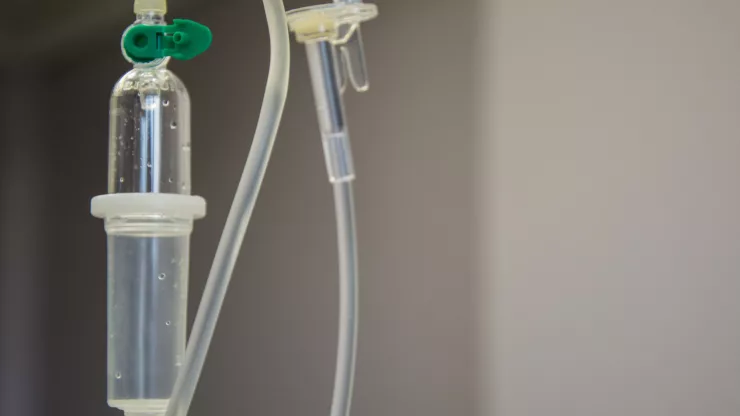SIBO treatment is a topic that has gained significant attention in recent years.
Small intestinal bacterial overgrowth (SIBO) is a condition characterized by an excessive growth of bacteria in the small intestine, leading to a range of uncomfortable symptoms and digestive issues.
While SIBO can be challenging to manage, there are various treatment strategies available that can help individuals regain control of their health and improve their quality of life.
In this article, we will explore the causes and symptoms of SIBO, discuss different diagnostic methods, examine conventional and natural treatment approaches, and provide tips for long-term management and prevention of SIBO relapse.
Jump to Section
Understanding SIBO: Causes and Symptoms
What is SIBO?
SIBO, or small intestinal bacterial overgrowth, occurs when there is an abnormal increase in the number of bacteria in the small intestine. Normally, the small intestine contains fewer bacteria compared to the large intestine.
However, in individuals with SIBO, these bacteria migrate from the large intestine to the small intestine, leading to an overgrowth.
The Role of Gut Bacteria in SIBO
The gut microbiota plays a crucial role in maintaining digestive health. These bacteria aid in the digestion and absorption of nutrients, produce essential vitamins, and support immune function.
However, an imbalance in gut bacteria can disrupt this delicate ecosystem and contribute to the development of SIBO.
Common Symptoms of SIBO
SIBO can manifest in various ways, and the symptoms can vary from person to person. Some common symptoms of SIBO include bloating, abdominal pain, diarrhea, constipation, gas, and malabsorption of nutrients.
These symptoms can significantly impact a person’s quality of life and overall well-being.
The Link Between SIBO and Digestive Disorders
SIBO is often associated with underlying digestive disorders such as irritable bowel syndrome (IBS), inflammatory bowel disease (IBD), celiac disease, and gastroesophageal reflux disease (GERD). It is essential to address these underlying conditions to effectively treat SIBO and prevent relapse.
Risk Factors for Developing SIBO
Certain factors can increase the risk of developing SIBO. These include a history of gastrointestinal surgery, structural abnormalities in the digestive tract, impaired gut motility, low stomach acid levels, and the use of certain medications such as proton pump inhibitors (PPIs) and antibiotics.
Diagnosing SIBO: Testing and Analysis
Common Methods for Diagnosing SIBO
Diagnosing SIBO requires specialized testing. Some common methods used to diagnose SIBO include breath testing, stool analysis, and small intestinal aspirate culture.
These tests help identify the presence of excessive bacteria in the small intestine and provide valuable information for effective treatment planning.
The Role of Breath Testing in SIBO Diagnosis
Breath testing is the most commonly used method to diagnose SIBO. This non-invasive test measures the levels of hydrogen and methane gases produced by the bacteria in the small intestine.
Elevated levels of these gases indicate the presence of SIBO and help determine the severity of the condition.
Interpreting Breath Test Results
Interpreting breath test results requires a thorough understanding of the normal and abnormal ranges of hydrogen and methane gases. A healthcare professional experienced in SIBO diagnosis can analyze the results and provide appropriate treatment recommendations based on the findings.
Comparing Different SIBO Testing Methods
Different SIBO testing methods have their advantages and limitations. A comprehensive comparison of these methods can help healthcare professionals choose the most appropriate test based on the patient’s symptoms, medical history, and individual needs.
The Importance of Accurate Diagnosis for Effective SIBO Treatment
Accurate diagnosis is crucial for effective SIBO treatment. A precise understanding of the underlying cause and severity of SIBO enables healthcare professionals to tailor treatment plans to the individual’s specific needs, improving treatment outcomes and reducing the risk of relapse.
Conventional Treatment Approaches for SIBO
Antibiotics: Pros and Cons
Antibiotics are commonly prescribed for the treatment of SIBO. They work by reducing the bacterial overgrowth in the small intestine.
While antibiotics can provide short-term relief, they also have limitations and potential side effects that need to be considered.
The Role of Prokinetics in SIBO Treatment
Prokinetics are medications that help improve gut motility and reduce the stagnation of food in the digestive tract. These medications can be beneficial in SIBO treatment, as they promote the movement of bacteria out of the small intestine.
Dietary Interventions: Low FODMAP and Elemental Diets
Dietary interventions form an essential part of SIBO treatment. Two common approaches are the low FODMAP diet and elemental diets.
The low FODMAP diet restricts certain types of carbohydrates that can feed SIBO bacteria, while elemental diets provide easily digestible nutrients to starve the bacteria and promote healing of the gut.
Comparing Different SIBO Treatment Approaches
Different SIBO treatment approaches have their strengths and limitations. Comparing these approaches can help individuals and healthcare professionals choose the most suitable treatment plan based on the severity of the condition, symptoms, and individual preferences.
Potential Side Effects of Conventional SIBO Treatments
Like any medical treatment, conventional SIBO treatments can have potential side effects. Understanding these side effects and their impact is crucial for making informed decisions about treatment options and managing the overall well-being of individuals with SIBO.
Natural and Holistic Approaches to SIBO Treatment
Herbal Supplements for SIBO: A Comprehensive Guide
Herbal supplements offer a natural and holistic approach to SIBO treatment. Various herbs, such as oregano oil, berberine, and neem, have antimicrobial properties that can help reduce bacterial overgrowth in the small intestine.
Consulting with a knowledgeable healthcare professional is essential when considering herbal supplements.
The Importance of Gut Health in SIBO Treatment
Maintaining a healthy gut is vital for effective SIBO treatment and long-term management. Supporting gut health through a balanced diet, stress management, and the use of probiotics can help restore the natural balance of gut bacteria and prevent SIBO relapse.
The Role of Probiotics in Balancing Gut Flora
Probiotics are beneficial bacteria that can help restore the balance of gut flora. They can be a valuable addition to SIBO treatment plans, promoting the growth of beneficial bacteria and inhibiting the growth of harmful bacteria in the small intestine.
Lifestyle Modifications for Managing SIBO Symptoms
In addition to medical interventions, certain lifestyle modifications can help manage SIBO symptoms and improve overall well-being. These may include stress management techniques, regular exercise, adequate sleep, and avoiding triggers that worsen SIBO symptoms.
Integrative Medicine Approaches for SIBO Treatment
Integrative medicine approaches, which combine conventional and natural therapies, can provide comprehensive and personalized treatment options for individuals with SIBO. Working with a healthcare professional experienced in integrative medicine can offer a holistic approach to SIBO treatment.
Personalized Treatment Strategies for SIBO
Factors to Consider when Designing a Personalized SIBO Treatment Plan
Designing a personalized SIBO treatment plan requires considering various factors such as the severity of the condition, underlying causes, individual symptoms, medical history, and treatment preferences. A personalized approach ensures that treatment strategies are tailored to meet the unique needs of each individual.
The Importance of Addressing Underlying Causes of SIBO
Identifying and addressing the underlying causes of SIBO is essential for long-term treatment success. Treating the root cause not only helps eliminate SIBO but also reduces the risk of relapse.
The Role of Stress Management in SIBO Treatment
Chronic stress can worsen SIBO symptoms and hinder treatment outcomes. Incorporating stress management techniques such as mindfulness meditation, yoga, and counseling can play a significant role in reducing stress levels and improving treatment efficacy.
Tracking Progress: Monitoring Symptoms and Test Results
Monitoring symptoms and test results is crucial in evaluating the effectiveness of SIBO treatment. Keeping track of improvements, setbacks, and changes in symptoms helps healthcare professionals make informed treatment adjustments and provides individuals with a sense of control over their treatment journey.
The Benefits of a Multimodal Approach to SIBO Treatment
A multimodal approach to SIBO treatment combines different treatment modalities to optimize outcomes. This comprehensive approach addresses the diverse aspects of SIBO, including bacterial overgrowth, gut motility, gut health, and symptom management.
Preventing SIBO Relapse: Long-Term Strategies
Dietary Recommendations for Preventing SIBO Relapse
Maintaining a healthy diet is crucial for preventing SIBO relapse. A diet rich in whole foods, low in fermentable carbohydrates, and tailored to individual needs can help reduce the risk of bacterial overgrowth and promote sustained remission.
Maintaining a Healthy Gut Microbiome
A healthy gut microbiome is essential for preventing SIBO relapse. Nurturing a diverse and balanced gut microbiota through the consumption of prebiotic-rich foods, probiotics, and fermented foods can support long-term gut health.
Lifestyle Habits for Sustained SIBO Remission
Adopting healthy lifestyle habits can significantly contribute to sustained SIBO remission. These may include regular exercise, stress management, adequate sleep, avoiding excessive alcohol consumption, and quitting smoking.
Strategies for Managing Recurring SIBO Symptoms
Recurring SIBO symptoms can be frustrating, but there are strategies to manage them effectively. Maintaining open communication with healthcare professionals, tracking symptoms, and implementing appropriate treatment adjustments can help individuals regain control and find relief from recurring symptoms.
Key Takeaways for Long-Term SIBO Management
Managing SIBO requires a comprehensive and individualized approach. Key takeaways for long-term SIBO management include addressing underlying causes, promoting gut health, adopting healthy lifestyle habits, and monitoring symptoms and test results to make informed treatment decisions.
Conclusion
Empowering Yourself: Taking Control of Your SIBO Treatment Journey
Taking control of your SIBO treatment journey is essential for achieving optimal outcomes. By understanding the causes, symptoms, and treatment options for SIBO, individuals can actively participate in their treatment plans, make informed decisions, and work collaboratively with healthcare professionals to regain their health and well-being.
FAQ
Can SIBO be cured completely?
SIBO can be effectively managed and symptoms can be significantly reduced or eliminated. However, complete eradication of SIBO may be challenging, especially if there are underlying causes that contribute to its recurrence.
Long-term management and preventive strategies are essential for sustained remission.
Are antibiotics the only effective treatment for SIBO?
While antibiotics are commonly prescribed for SIBO treatment, they are not the only effective option. Natural and holistic approaches, dietary modifications, prokinetics, and integrative medicine therapies can also play a significant role in achieving positive treatment outcomes.
How long does it take to see improvements with SIBO treatment?
The timeline for improvement varies from person to person and depends on factors such as the severity of the condition, the chosen treatment approach, and individual response. Some individuals may experience improvements within weeks, while others may require months of treatment to achieve optimal results.
Can SIBO come back after successful treatment?
SIBO can recur after successful treatment, especially if the underlying causes are not addressed or if lifestyle habits and preventive strategies are not implemented. Regular monitoring, addressing root causes, and maintaining a healthy gut microbiome are essential for preventing SIBO relapse.
Is SIBO a lifelong condition?
SIBO can be a chronic condition for some individuals, requiring ongoing management and preventive strategies. However, with proper treatment, lifestyle modifications, and addressing underlying causes, many individuals can achieve long-term remission and significantly improve their quality of life.

With a deep passion for personal development, Ben has dedicated his career to inspiring and guiding others on their journey towards self-improvement.
His love for learning and sharing knowledge about personal growth strategies, mindfulness, and goal-setting principles has led him to create My Virtual Life Coach.
Contact Ben at [email protected] for assistance.




